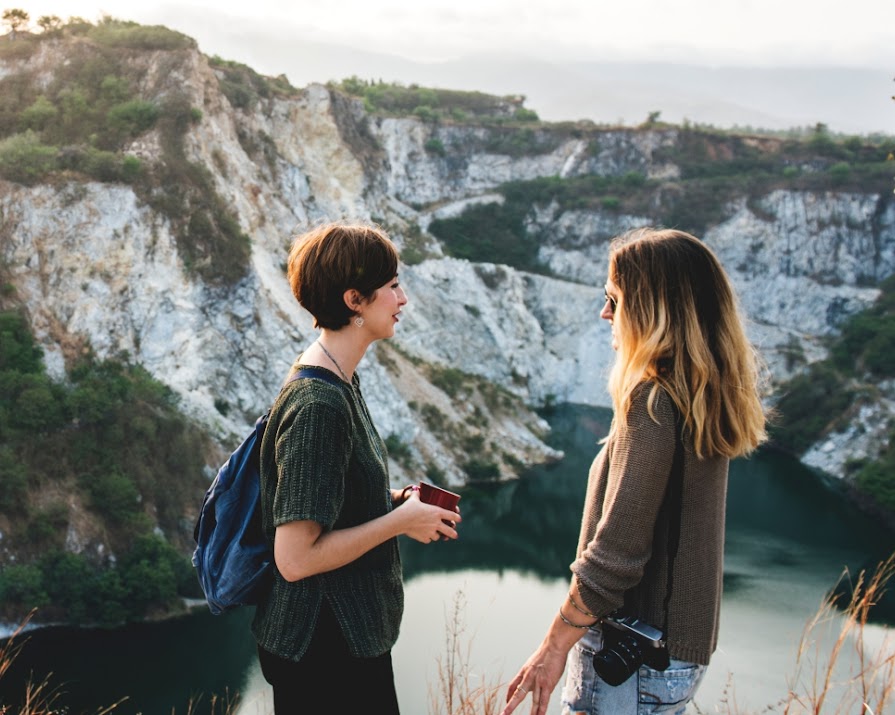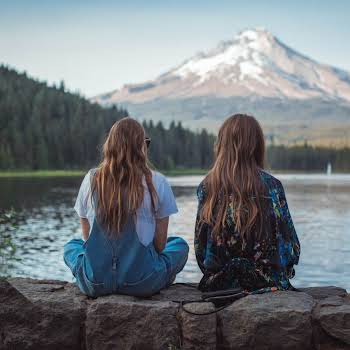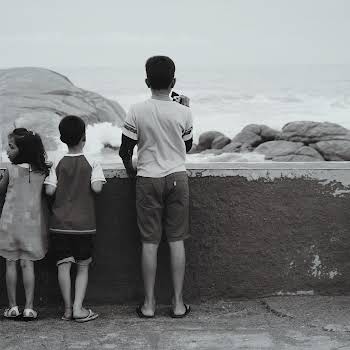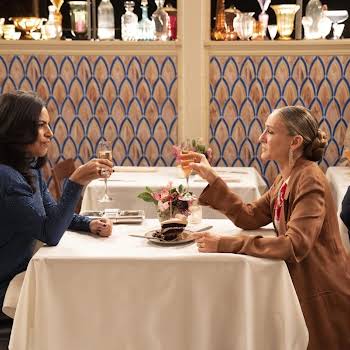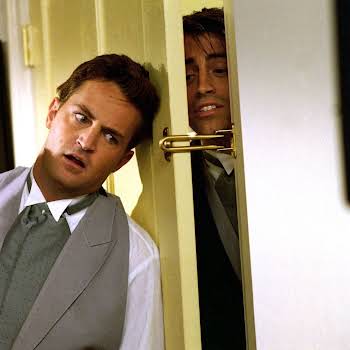Please can we be friends? Why post-30, it’s easier to date than make friends
By Sophie White
21st Apr 2018
21st Apr 2018
Friendships are arguably the most valuable and equally the most complex relationships we have in life. I have spent infinitely more time agonising over the turmoil of arguments with my friends than I ever have over any man.
I once interviewed screenwriter and author Stefanie Preissner who echoed this:
“I have definitely suffered more trauma at the hands of female friendships than I have from any man. Women are so clever and so capable of the greatest generosities and the greatest atrocities,” she told me.
This was in the context of telling me of how she came to be bullied by a group of longtime friends. In her brilliant memoir Why Can’t Everything Just Stay The Same, she detailed how her school friends froze her out for being too “stressful” and set up a WhatsApp group to deliberately exclude her. “I remembered the feelings of being in school, when no one was talking to you and you’re aware of how inconsequential and yet all-consuming it is. It’s a devastating place to be.” In her hit TV show, Can’t Cope, Won’t Cope refreshingly Preissner places the friendship (rather than the pursuit of a relationship) between her two main female characters front and centre and is one of the few writers to give due weight to that murky, sometimes malicious, always monumental thing: our friendships.
Nailing friendships is something we attach a lot of our self-worth to. If we have difficulty making or maintaining lasting friendships it can feel like a personal failure. A recent 6,000-person survey conducted by Relate (a British organisation that provides relationship support and counseling) found that one in ten have no close friends. Findings also showed that having poor-quality or non-existent social connections is correlated to lower self-esteem. Of people who described their friendships as good or very good, 87 percent said they felt good about themselves sometimes, often, or always. Meanwhile, among people in average or bad friendships, that number dropped to 63 percent.
In therapy, I have spent more time angsting over my friends than any other aspect of my life, however as I’ve gotten older I’ve realised that friending is actually a thing you can work on, a muscle that can be exercised.
When entering the words ‘can’t’ and ‘keep’ in a google search the first prompt is ‘friends’, it seems anxiety over friendships is a widespread issue and one that I have found only increases with age when opportunities to meet new people become more limited.
One way or another, chances are you’ll get out of school with some form of friend gang. In secondary school, I was constantly fearful of losing friends, as though they could slip through my fingers as easily as water. My school friend gang is made up of about 10 of us, 50 % of whom now live overseas. Our meet ups are way less frequent these days and sometimes it’s easy to forget that at one time in our lives we spent every day together.
In college, I didn’t make friends all that well for the first year. I was very jealous of my two closest friends from school who were in a different university together and therefore not navigating the unpleasant and lonely terrain of student nights out with not a soul to so much as stand beside, never mind talk to.
It got me thinking about the slight toxicity that can develop in those early teenage friendships, when unwittingly by pronouncing someone our ‘best friend’ we are potentially shutting off potential for other friendships. It’s something I was always conscious of when I was younger, a certain unofficial hierarchy of friends. I think perhaps I felt that there was a finite number of ‘best friends’ and that really I would never make friends as close as those I made in school. And yes, for as long as I had this attitude, I didn’t.
But then something key happened: Life.
Stretches of isolation are not uncommon and big life changes like moving, becoming a parent or changing job often precipitate a sudden new need to put yourself out there. I lived abroad between the ages of 22 and 28 and in those years became adept at the kind of surface, often unsatisfactory, friendships that’ll get you through a night out or the next day’s hangover but rarely take root deeper and last. I lived in a seasonal town, I moved a lot and when I eventually moved home I assumed I would fall seamlessly back in with my old friends.
It was a shock then to realise that my old friends now had many new layers of friends from having stayed in one place – a whole new set of adult friends (college friends, work friends, gym friends). I tried to attach myself limpet-like to some of their new friends which proved both unsuccessful and a little depressing. That’s when I was invited to join a book club full of strangers, an offer that previously I would never have taken up. Five years later and my book club is one of the best things in my life. I’d never before gone into a group of adults and managed to persuade them to be my friends, it gave me a confidence I didn’t even realise I was lacking.
While book club eased the paradoxically lonely transition of moving back home in my late 20s, in my 30s I have collected and nurtured a whole new and essential tribe, the mum friends. When I had a baby, I didn’t know a single other person my age who was a mother – the loneliness was crushing. What I needed was a mum-friend. Someone to nod when I said: “this is mildly hellish, right?” Someone with a similar appetite for examining the minutia of newborn sleep cycles (zero people except other new parents want to discuss this oddly). I became dogged in my pursuit of mum friends.
It was verging on predatory.
In the hospital when my sons was days old, I bribed two of the other mothers in my room to give me their numbers. Seriously. I fully gave them a box of sweets each and in no uncertain terms demanded (DEMANDED) their numbers in return. I asked mothers out on mum dates. I followed mothers. I’d spy them out enjoying a walk with their baby. Then I’d accost them, wild-eyed and sleep deprived, grip their arm and ask if their one ever slept because my one seemed to have unbelievable stamina for screaming between the hours of 2 and 6am.
Incredibly I did manage to make some mum friends. Eventually. I must’ve toned back the stalking.
The difficulty of making friends when we’re older comes from a number of things. I think sometimes the hardest part about making a new friend as an adult is offering up the harder facts of our past, “the baggage” as my oldest friend calls it. We are so short on time that new friendships compete with myriad obligations, another friend tells me that she too finds it harder now that we’re older “but the friendships I do make are closer and more meaningful. The good thing is that it gets easier to identify the people you want to be friends with because it’s pretty rare that you immediately connect, and I don’t bother at all with anyone I don’t have that with anymore because I don’t have the time.”
One interesting answer to the time shortage comes in the form of online friendships. Often the digital age is billed as one of isolation and loneliness but in the last year since I joined Instagram, I’ve cultivated a number of online friendships as important and nourishing to me as any of my IRL ones. Indeed “friend dating” organisations like Girl Crew were quick off the mark when they set up some years ago, seeking to help adults in search of friendship. There’s even a Tinder for mums, I learned belatedly, called Peanut. If nothing else it’s a comfort to learn that there are others who struggle to make and keep friends though if we manage it there’s no more rewarding experience.
Photo by rawpixel.com on Unsplash











